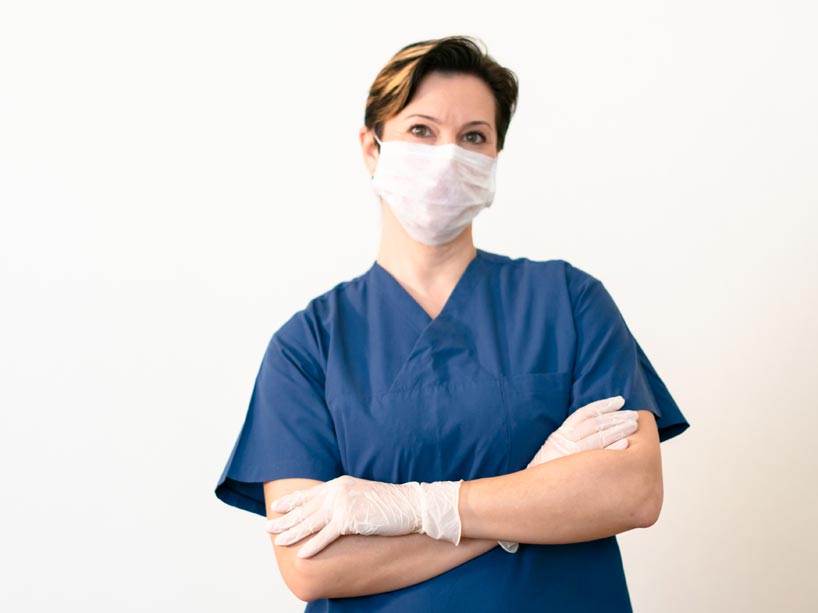How will nursing change after COVID-19? A Ryerson nursing professor weighs in

In addition to safety and patient care, nursing students will need tools in psychology and self-care to deal with pandemics like COVID-19. Photo: iStock.
Hundreds of students graduate from Ryerson’s Daphne Cockwell School of Nursing each year. They are taught valuable lessons in safety and patient care. They learn important aspects of community advocacy and leadership. Students learn about helping people deal with unexpected events. All nursing students get some exposure to disaster training and management.
But what is it like for nurses, including Ryerson alumni, on the front lines during COVID-19?
“They are exhausted. They are tired. They are stressed. It’s scary,” said professor Corinne Hart, who practiced for many years as a public health nurse and currently teaches community health nursing practice and theory as the lead teacher for third year students.
Hart added that front line nurses are simply pushing through and going to work. “They are doing their jobs.”
The global pandemic is presenting an interesting question as the world continues to learn from its impact: how will training for nurses change?
“Nurses on the front lines are being put into scary situations,” said Hart. “We’re going to have to respond to that by helping students acquire the tools they need to be better prepared for this.” Hart noted that this includes more training in how to deal with unexpected events from moral, ethical and self-care perspectives.
In terms of preparing for the workforce, nurses are taught to think critically so they can make judgements and ethical decisions.
“What needs to happen now, is a lot more reflective and honest conversations about what to do when you’re put in scary, life-threatening, uncomfortable situations,” said Hart. “Nurses are already good at taking care of the physical aspects of their jobs, we’re going to have to incorporate more tools on psychology and resilience.”
The importance of self-care will also need to be discussed. Hart knows that nurses have a tendency to keep going to the point where they can burn out and get sick.
While it is hard to make predictions in the middle of a global health issue, it is clear this unprecedented crisis raises awareness of what else is needed to prepare nurses for future pandemics.
“We owe it to our students to figure out what we didn’t teach enough of, and incorporate that. We owe it to the people who are going to be out there and on the front lines.”